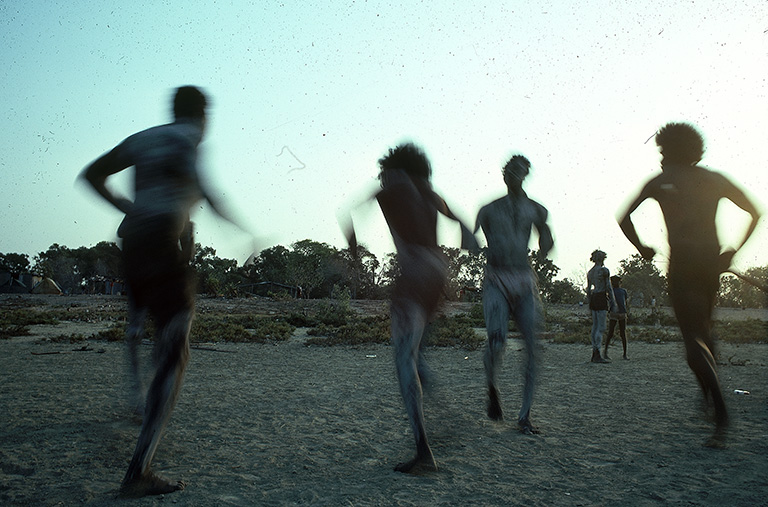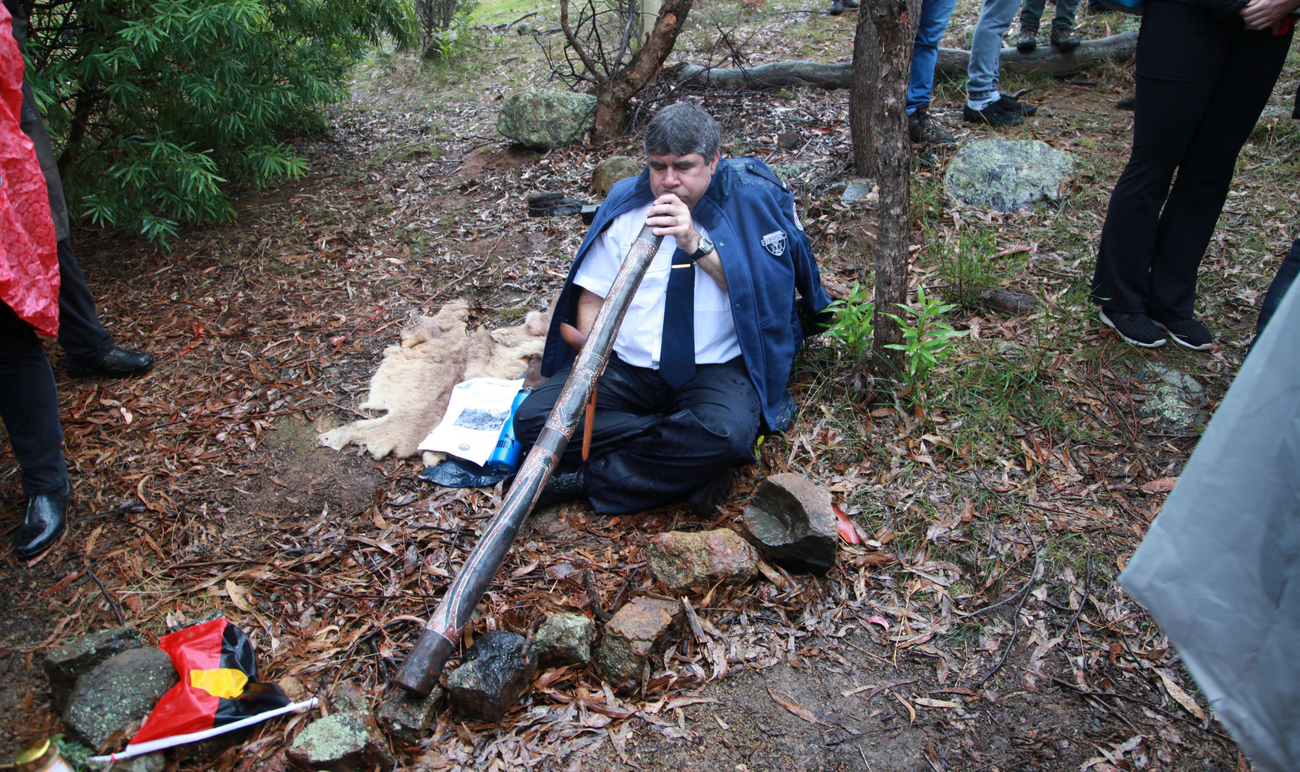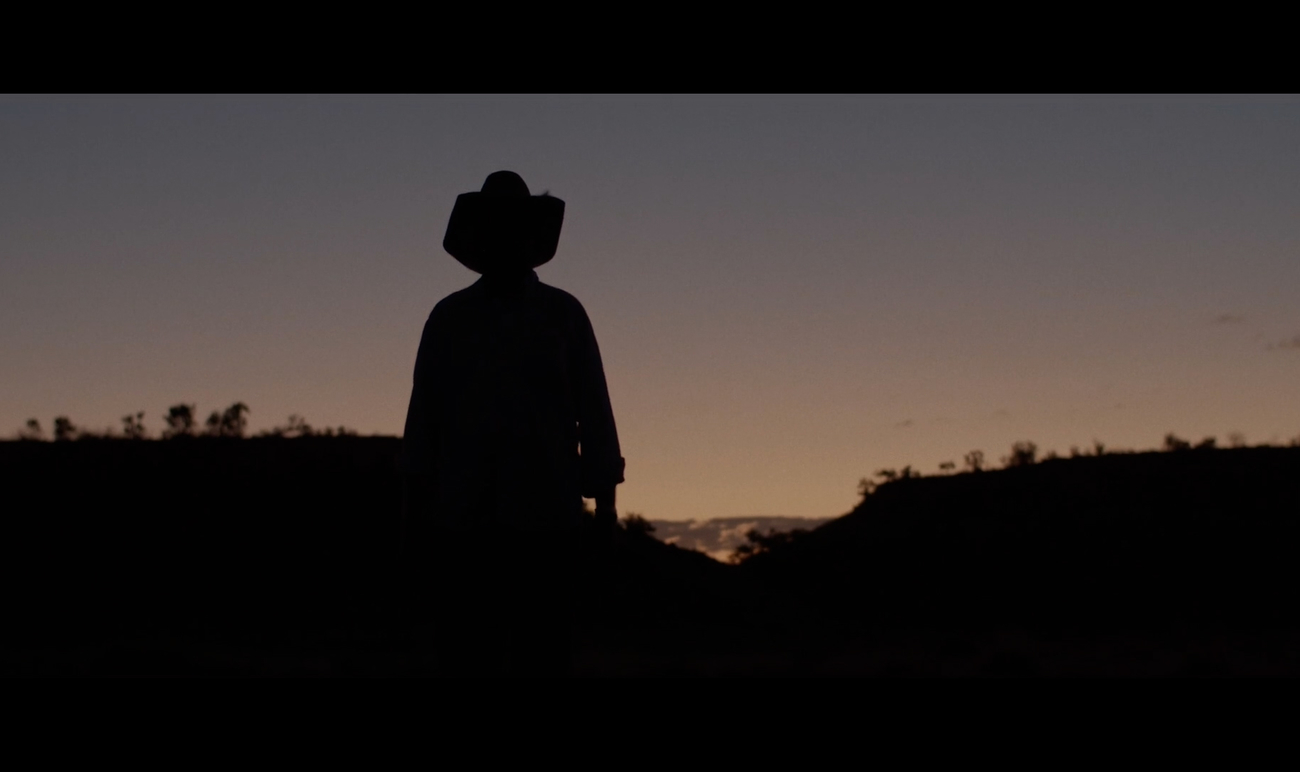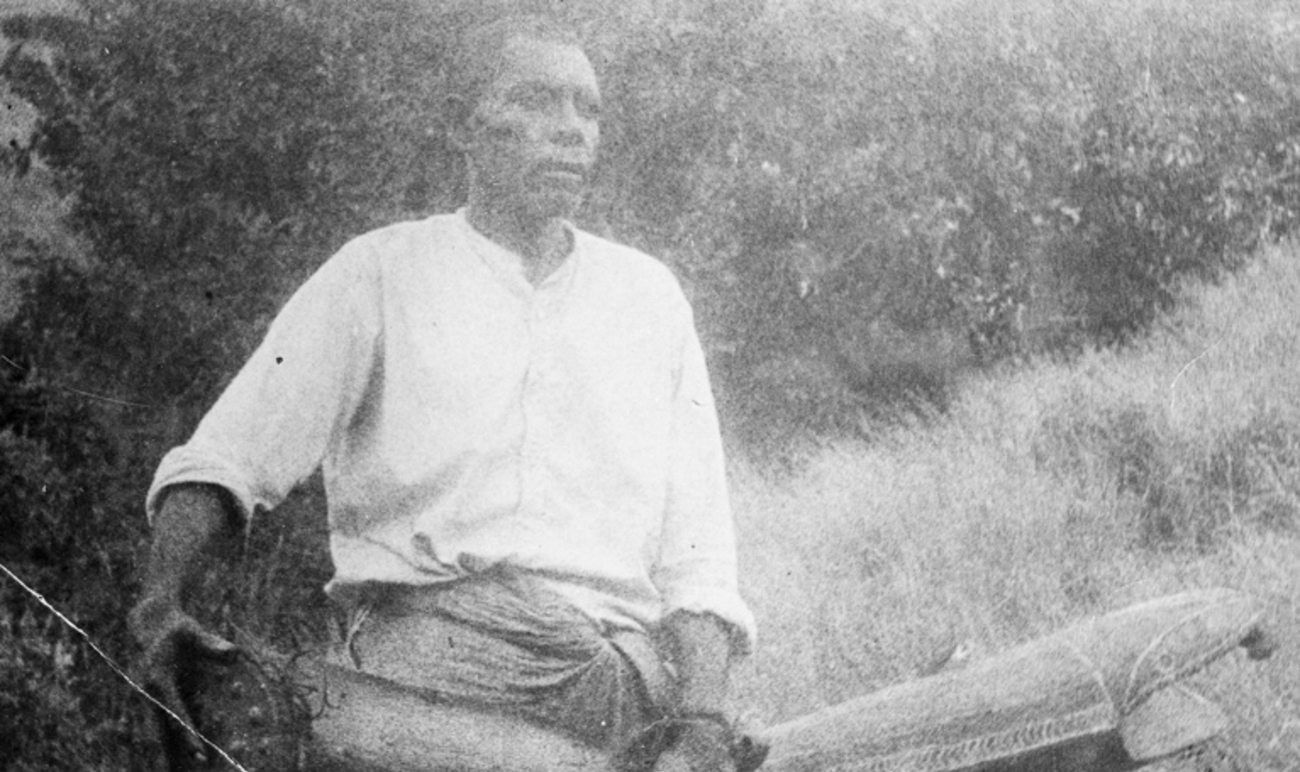‘Treaty’ was a worldwide hit and the first song by a mainly Aboriginal band to peak on the ARIA singles chart. It was also the first song in an Aboriginal Australian language to gain extensive international recognition. Peaking internationally at number 6 on the Billboard Hot Dance Club Play singles chart, it remains one of Australia’s most iconic rock songs.
Released in 1991, 'Treaty' was composed by Yothu Yindi members Mandawuy Yunupingu, Stuart Kellaway, Cal Williams, Gurrumul Yunupingu, Milkayngu Mununggurr and Witiyana Marika, and Aussie rockers Peter Garrett and Paul Kelly.
The song combined balanda (non-Indigenous) and Yolngu rhythms along with stridently political lyrics that were in response to the Hawke Government’s broken promise of a Treaty between Indigenous Australians and the Australian Government.
The song takes inspiration from an old recording of the djantpangarri/djedbangari song 'Storm', which is part of the Waterman Collection of sound recordings that were donated to AIATSIS by American musicologist, Richard Waterman.
Waterman worked at Yirrkala in the Northern Territory between 1952 and 1953 and copies of his recordings were later repatriated to the community via ethnomusicologist Jill Stubington while she was there on AIATSIS funded fieldwork in 1989 .
The Waterman collection contains over fifteen hours of recordings including the djantpangarri / djedbangari song ‘Storm’, performed by Rrikin Burarrwanga (singer), Djeila (singer), Djalalingba (singer) and Djirnini Dhamanandji (yidaki).
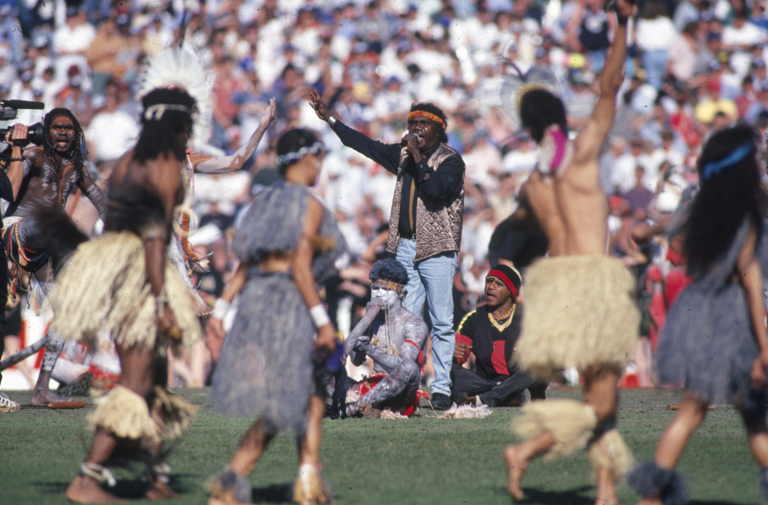
The 1993 AFL Grand Final half-time entertainment with dancers and band Yothu Yindi performing with lead singer Mandawuy Yunupingu (centre) and Archie Roach (sitting cross legged behind Yunipingu). ATSIC.065.CS-A00002384
The 1993 AFL Grand Final half-time entertainment with dancers and band Yothu Yindi performing with lead singer Mandawuy Yunupingu (centre) and Archie Roach (sitting cross legged behind Yunipingu). ATSIC.065.CS-A00002384
The djantpangarri dance and song form is attributed to Dambidjawa, a Gumatj speaker of the Yirritja moiety and brother of Rrikin (Stubington, 1994, p. 254). It is a form of song that is about fun and entertainment which dominated the popular music scene among Yirrkala youths from the 1930s through to the 1970s (Knopoff, 1997, p. 603).
Dr Mandawuy Yunupingu, the lead singer of Yothu Yindi, recalled hearing the song at the Yirrkala Literature Production Centre in 1989. He noted:
‘Though it borrows from rock ’n’ roll, the whole structure of “Treaty” is driven by the beat of the djatpangarri that I’ve incorporated to it. It was an old recording of this historic djatpangarri that triggered the song’s composition. The man who originally created it, Rrikin Burarrwanga, was my gurrung (mother’s mother’s mother’s mother’s brother’s son) and he passed away a long time ago in 1978. He was a real master of the djatpangarri style.' (Yunupingu in Marett et. al. 2006)
The Waterman collection features a number of recordings in the djantpangarri style. This includes songs by Rrrikin, Dadaynga, Djeila and Dhambutjawa. The album ‘Tribal Voice’, which contains the song ‘Treaty’, is dedicated to these masters.
Three decades later, ‘Treaty’ continues to be a powerful reminder of First Nation people’s desire for self-determination and self-management, including the freedom to pursue economic, social, religious and cultural development.
More about the Waterman collection
- Waterman, R 1952-53. Songs on traditional and modern themes from Yirrkala, WATERMAN_R01
Further reading
- Corn, A et. al. 2009 Reflections & Voices: exploring the music of Yothu Yindi with Mandawuy Yunupingu, Sydney University Press, Sydney.
- SBS News 2013 Read the lyrics of Yothu Yindi song 'Treaty'
- Stubington, J 1989. Yolngu manikay : the construction of a research field, Yirrkala, Australian Institute of Aboriginal and Torres Strait Islander Studies, PMS 4728
- Stubington, J 1989. [List of tapes of Aboriginal songs from Arnhem land], Australian Institute of Aboriginal and Torres Strait Islander Studies, PMS 1979
- Stubington , J 1994. Yolngu manikay at Yirrkala : the construction of a research field, The World of Music, vol. 36 no. 1, pp. 82-92.
- Stubington, J and Dunbar-Hall, P 1994. Yothu Yindi's "treaty": ganma in music, Popular Music, vol. 13, no. 3, pp. 243-259.
References
- Corn, A 2011, ‘Treaty Now: Popular Music and the Indigenous Struggle for justice in Contemporary Australia’ in I Peddie, Popular Music and Human Rights, 2 : World Music, Ashgate Publishing, Farnham, pp. 17-26
- Marett, A., Yunupingu, M., Langton, M., Gumbula, N., Barwick, L., & Corn, A. (2006), ‘The National Recording Project for Indigenous Performance in Australia: year one in review’ in Backing Our Creativity: the National Education and the Arts Symposium, 12-14 September 2005 (pp.84-90). Surry Hills, NSW: Australia Council for the Arts.
- Knopoff, S. 1997. "Accompanying the Dreaming: Determinants of Didjeridu Style in Traditional and Popular Yolngu Song," in The Didjeridu: From Arnhem Land to Internet. Edited by K Neuenfeldt. Sydney: Perfect Beat Publications
